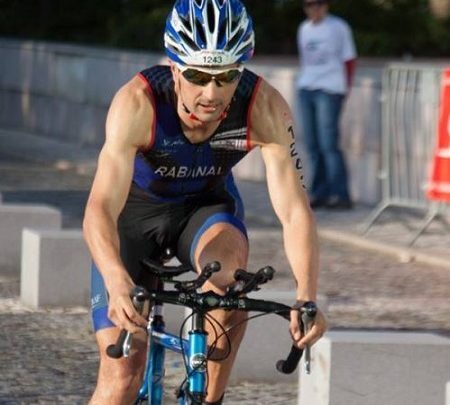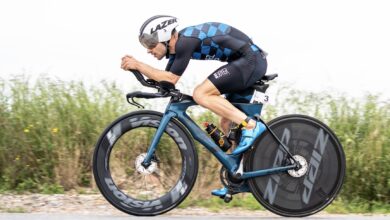Supplementation with creatine for triathletes

Creatine supplementation increases sports performance in actions of high intensity and short duration that depend mainly on where the anaerobic alactic metabolism is a priority.
La Sports supplement it is the consumption of natural nutrients, but in an optimum quantity and at a maximum absorption speed, which produce adequate hormonal and biochemical effects to a better adaptation to sports training. Food supplements increase the effects sought by training and decrease those that are not desired.
This time we will analyze a sports supplement that is very used by bodybuilders but that is also very effective in endurance sports, especially in cycling and triathlon.
What is creatine?
Creatine is a natural nutrient found in foods of animal origin and the daily requirements are around 2 g, of which 50% comes from endogenous synthesis in the liver, pancreas and kidneys from certain amino acids and the another 50% must be provided through the diet (meat and fish).
Sports benefits:
Creatine supplementation increases the sports performance in actions of high intensity and of short duration that depend fundamentally where the anaerobic alactic metabolism is a priority. It is most effective in those exercises that involve repeated “sprints” or episodes of high intensity efforts lasting between 2-30 seconds and separated by short recovery intervals.
With regard to triathletes and athletes in the background, it has been seen that it favors the increase of glycogen stores in the hydrate overload protocols, which considerably increases performance in tests that last more than two hours and above all in those of long duration such as the IM.
There is great individual variability in the response to creatine supplementation that depends on initial deposits. A quarter of the population does not increase muscle creatine content in sufficient quantity to cause changes in sports performance. It is especially recommended in those individuals who consume a low-meat diet such as vegetarians or with a high caloric burnout such as triathletes.
Supplementation protocol:
Creatine monohydrate is the most practical way to supplement creatine and can be supplied in two ways:
QUICK: It is done in 5 days with a dose of 20-30 g according to the muscular weight of the person divided into 4 daily doses. It is the most interesting to do a carbohydrate overload protocol prior to competition.
SLOW (Results similar to the fast loading protocol): It is carried out over 4 weeks administering 3 g daily in single doses. I do not usually recommend it to endurance athletes except in periods of training with high intensity or with specific strength work.
Administration:
It should be taken with about 50-100 g of carbohydrates in the form of fruits or sweet juices such as bananas, dates, must ... to enhance the absorption of creatine, since insulin levels rise, which achieves an increase in the permeability of the muscle membrane to creatine.
If during the supplementation period submaximal exercises are performed, creatine uptake is optimized 5-10% above basal levels. That is why it is advisable to take it about 40-80 minutes before training.
Most of the uptake is done in the first moments of supplementation and the excess is eliminated via the kidneys.
Considerations regarding its use:
• In the short term, creatine supplementation is invariably associated with a weight gain of 800-1500 grams due to water retention. This effect has been observed mainly in males.
• There is evidence that consuming caffeine and vitamin C decreases the effectiveness of creatine.
• Chronic creatine intake coupled with training can increase muscle.
• Short-term creatine supplementation and chronic supplementation periods of up to eight weeks have not been associated with harm to the athlete's health, although it should not be taken by people with kidney damage.
Miguel A. Rabanal
There are no previous results.




























